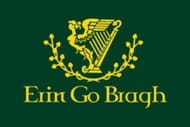If one plans to celebrate St. Patrick’s Day on March 17, they will hear Erin Go Bragh chant for sure. The phrase is most commonly heard throughout the holiday, which honors Irish culture and tradition. The correct way to pronounce the phrase is “Erin Go” as it is spelt and “Bragh” is pronounced as “Brah.”
The phrase translates directly to “Ireland until the end of time.” According to Parade, it also occasionally translates to the statement “Ireland until doomsday.”
To respond to Erin Go Bragh, one can say “Cheers!” or “Happy St Patrick’s Day.” The word “Sláinte” which means “cheers” or “good health” can also be used. The aforementioned word can be pronounced as “slahn- cha.”
Where does the Erin Go Bragh phrase originate from?
The phrase was commonly used in the Irish Rebellion of 1798 where a group of Irish rebels stood against British rule. The United Irishmen were inspired by the French revolution and attempted to unite Catholics, Protestants, and Dissenters to fight against Britishers.

Though the British crown won against Ireland, the Irish soldiers waved their flags embedded with the phrase and cried the same during the battle.
The Erin Go Bragh phrase is now being used to show loyalty towards Ireland.
The Irish phrase was first used in the United States during the Mexican American War. The Irish-American soldiers fought alongside Mexican and European forces against the United States. The former group called themselves the St. Patrick’s Battalion.
How St. Patrick's Day is being celebrated in Dublin this year
Nearly 400,000 people are attending the celebrations in Dublin today. The highlight of this year’s festivities was the parade, which traveled across the city of Dublin.
The theme for this year’s festival was “Connections.” This year's theme claims to be inviting Ireland and the world to reconnect with each other through culture, art, and heritage.
A few celebrities spotted at this year’s festival included sportswomen Ellen Keane and Kellie Harrington. The international guest of honor this year was actor John C Reilly.
